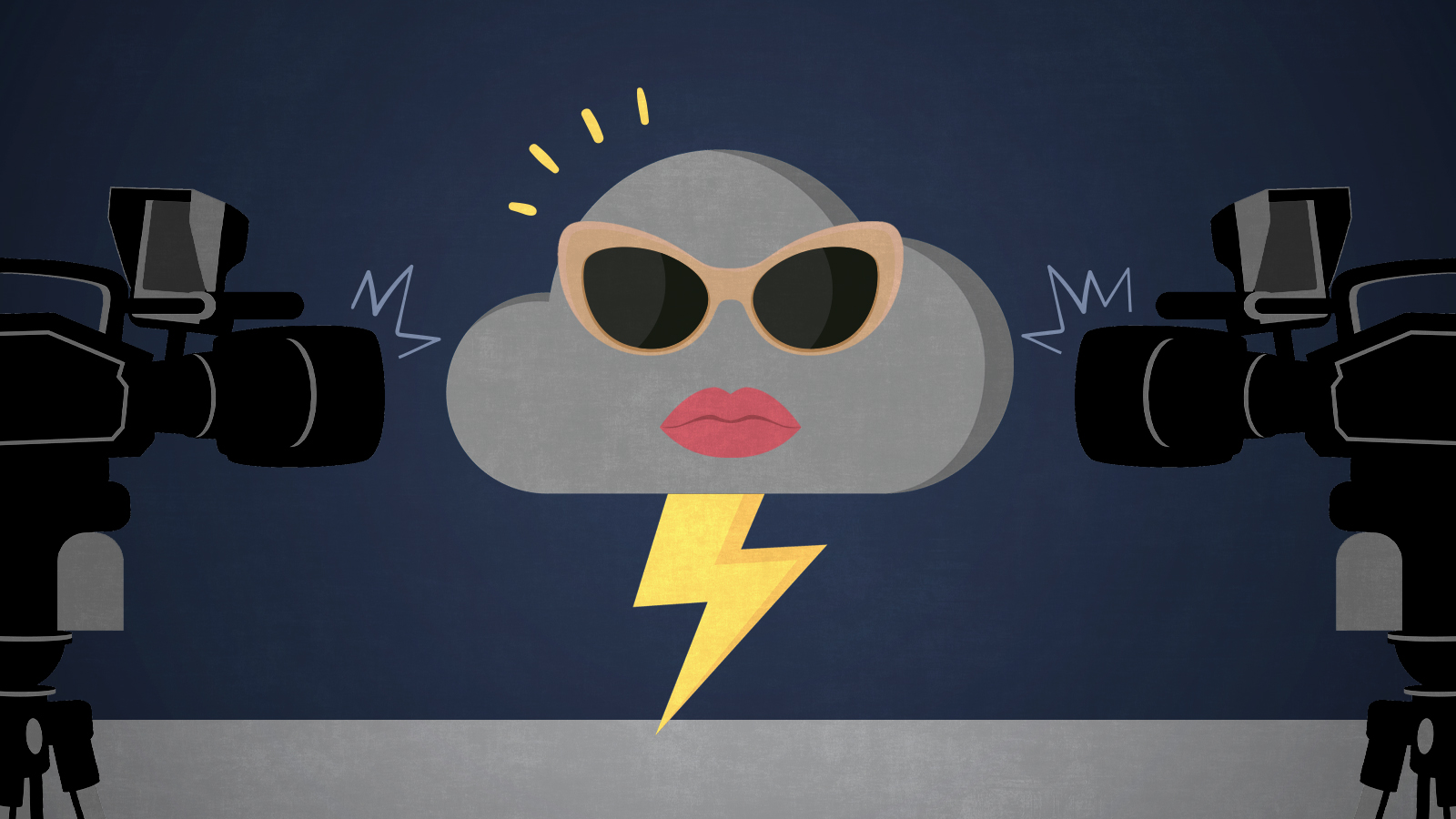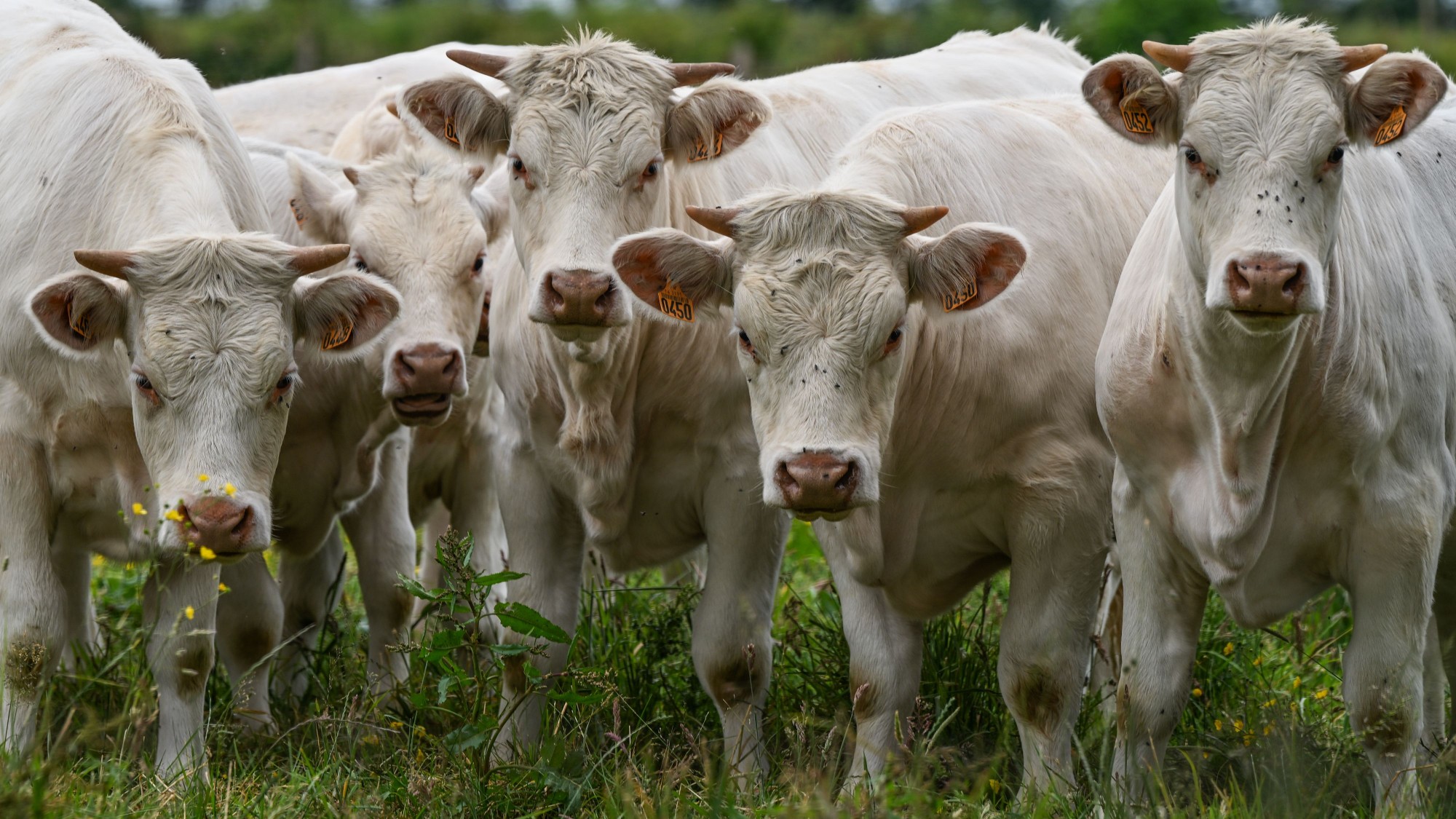The weather is still the greatest show on Earth


A free daily email with the biggest news stories of the day – and the best features from TheWeek.com
You are now subscribed
Your newsletter sign-up was successful
This weekend I went to a wedding, where I spent a good portion of the night talking to the other attendees about the weather.
That might not seem notable: The weather is exactly the sort of inoffensive topic you're supposed to talk about at weddings, right up there with how you know the couple and the quality of the cake. But as anyone who's had any social interaction lately has noticed, the weather has been putting the Ringling Bros. to shame as the greatest show on Earth.

This summer, for example, I've talked about the weather with strangers in Seattle, where the heat soared to a record-breaking 108 degrees Fahrenheit, and in New York City, as our friends' outdoor nuptials were threatened by what was then on track to be the first hurricane to make landfall in New England in 36 years (the storm was ultimately downgraded by the time it reached Rhode Island). No longer the banal, easy opening remark that it once was, the weather has become a more pressing observation, at least as worthy of mention as the latest Bennifer development or rumors about Tiger King season 2. And publishers are taking note: "Amid a waning appetite for political news in the post-Trump era," The New York Times wrote earlier this summer, "media executives are realizing that demand for weather updates is ubiquitous — and for an increasing swath of the country, a matter of urgent concern."
The Week
Escape your echo chamber. Get the facts behind the news, plus analysis from multiple perspectives.

Sign up for The Week's Free Newsletters
From our morning news briefing to a weekly Good News Newsletter, get the best of The Week delivered directly to your inbox.
From our morning news briefing to a weekly Good News Newsletter, get the best of The Week delivered directly to your inbox.
That makes sense: Like live sports, the other evergreen standby for media companies, the weather is unpredictable, and people want to read the latest updates in real-time. There is, of course, no use in learning that it rained two hours ago. Interpretation of the data by experts is a necessity, too. And most obviously, the weather directly affects our lives, in a way that so many other important news stories mostly do not.
But suggesting the weather occupies a conversational space that is in direct opposition to "political news" is also misleading. Because while once a comment like "strange weather we're having!" might have indeed been innocent enough, it's nearly impossible to remark upon anymore without the implicit reminder that scientists overwhelmingly believe that human activity is responsible for the extreme weather.
That's not to say there won't be stubborn attempts to report on the weather without mentioning climate change — take Fox News, which is savvily capitalizing on the new conditions by launching its own meteorological arm even as the flagship network's biggest personalities frequently downplay or deny the crisis. "How do you address the fact that weather changes are caused to some degree by humans when you have a media property with a history of challenging that fact?" Brian Wieser, the lead analyst at advertising giant WPP's media investing arm, marveled to The New York Times about the new venture.
But the fact that even Fox News is rushing to cover the weather is a sign in and of itself. Likewise, The Weather Channel, the company best positioned for the surge of customer interest, is launching a subscription video service later this year called — what else? — The Weather Channel Plus. The new service will "feature more than 50 streaming channels of news and entertainment and will cost subscribers $4.99 a month," Variety reports.
A free daily email with the biggest news stories of the day – and the best features from TheWeek.com
And while it might seem crazy to expect customers to pay to learn about the weather when we have info readily available for free on our phones, that's exactly what a new Twitter service called Currently is also banking on. The social media platform partnered with meteorologist, climate journalist, and author Eric Holthaus on the project, which offers both free city-specific newsletters as well as paid memberships that start at $10 and, among other perks, allow subscribers to directly ask meteorologists and climate experts questions "with a guaranteed response." Currently also centers the climate crisis in its coverage, with merch that touts that "we are in a climate emergency" and "we were born at exactly the right time to change everything."
This media boom isn't a case of copycat ventures, but of a real need to satisfy customer demand. After all, we're the ones who've been making casual conversation about the wildfires, the extreme heat, the flooding, the storms — because it's happening in our backyards. You can't not talk about it anymore, regardless of the danger of a conversational faux pas.
It'd be better for everyone if the weather really was as boring as its reputation would have us believe. But the sad truth is that it isn't, and won't be again anytime soon. Extreme weather will continue to rivet us, to scare us, and to threaten us; it's no wonder we can't stop talking about it. It's the greatest show we're all tuned into — because we're living it, too.
Jeva Lange was the executive editor at TheWeek.com. She formerly served as The Week's deputy editor and culture critic. She is also a contributor to Screen Slate, and her writing has appeared in The New York Daily News, The Awl, Vice, and Gothamist, among other publications. Jeva lives in New York City. Follow her on Twitter.
-
 The Olympic timekeepers keeping the Games on track
The Olympic timekeepers keeping the Games on trackUnder the Radar Swiss watchmaking giant Omega has been at the finish line of every Olympic Games for nearly 100 years
-
 Will increasing tensions with Iran boil over into war?
Will increasing tensions with Iran boil over into war?Today’s Big Question President Donald Trump has recently been threatening the country
-
 Corruption: The spy sheikh and the president
Corruption: The spy sheikh and the presidentFeature Trump is at the center of another scandal
-
 David Attenborough at 99: a 'radical' voice for climate action
David Attenborough at 99: a 'radical' voice for climate actionIn The Spotlight In his new film 'Ocean', TV's best-known naturalist delivers his strongest message yet
-
 The secrets of lab-grown chocolate
The secrets of lab-grown chocolateUnder The Radar Chocolate created 'in a Petri dish' could save crisis-hit industry
-
 Kyoto: 'total thrill ride' explores pivotal climate change conference
Kyoto: 'total thrill ride' explores pivotal climate change conferenceThe Week Recommends Play centres on 'cut-throat diplomacy' surrounding the United Nations
-
 Bovaer: the new dairy additive prompting boycotts and conspiracy theories
Bovaer: the new dairy additive prompting boycotts and conspiracy theoriesIn The Spotlight Manufacturer says it wants to reduce methane emissions from cows but social media criticism has grown
-
 4 tips for hosting an ecofriendly Thanksgiving
4 tips for hosting an ecofriendly ThanksgivingThe Week Recommends Coming together for the holidays typically produces a ton of waste, but with proper preparation, you can have an environmentally friendly gathering.
-
 In 'Twisters,' there are no winds of (climate) change
In 'Twisters,' there are no winds of (climate) changeTalking Points The weather-focused blockbuster kicks up a swirl of controversy over a conspicuous and deliberate omission
-
 Jurassic Park: how dinosaurs put wine on your table
Jurassic Park: how dinosaurs put wine on your tableUnder The Radar The disappearance of the 'lumbering beasts' allowed the grape to 'take over the world'
-
 The push for more climate change stories in Hollywood
The push for more climate change stories in HollywoodThe Explainer America's entertainment industry has often been accused of marginalizing stories about the planet
